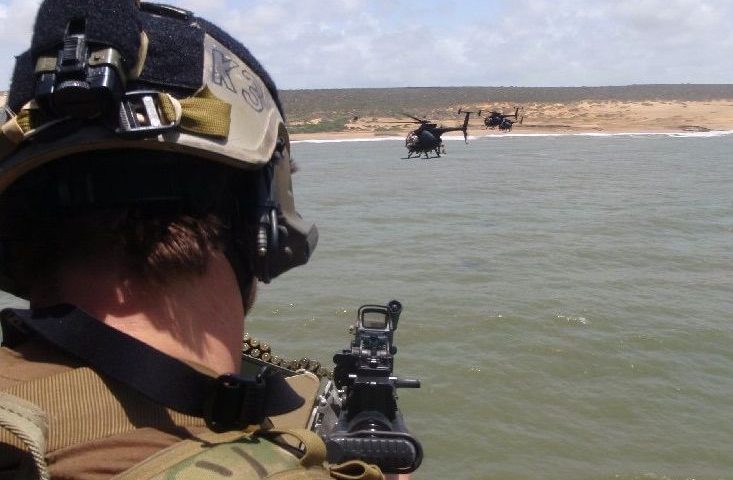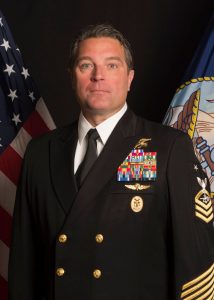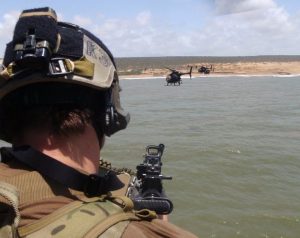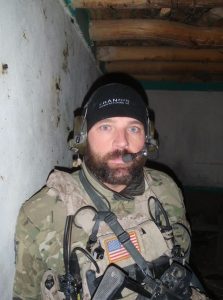He recently contacted NKCF to ask how he can help. Now working with veterans and others, he wanted us to know that he never let KC keep him from accomplishing his mission. He shares his remarkable story:
I enlisted in the Navy in 1987, and three years later began training as a SEAL. I was diagnosed with KC shortly after 9-11. After 2001, I deployed multiple times to Afghanistan and Iraq. I tried everything to battle my KC. Glasses and gas permeable contact lenses just didn’t work. The heat caused my glasses to fog, and the constant dust made GP lenses too uncomfortable to wear. I ended up for the better part of 15 years not wearing anything in my left eye while deployed. While this strategy worked, it obviously was suboptimal for me. It causes constant headaches and really affected me while utilizing Night Vision Goggles while operating at night. When I would come home from deployment, it would take weeks for me to get used to wearing a GP lens again.
The official policy of the Department of Defense Medical Standards for Appointment, Enlistment or Induction (DoDI 6130.03) is that a diagnosis of keratoconus prior to enlistment will disqualify an individual for service or admission to a service academy.
Individuals like Van Horn, who are diagnosed with KC while in active service, are given regular medical evaluations and their continued service is reviewed on a case-by-case basis. Dr. Marc Neuffer, MD, an ophthalmologist at the Air Force Academy in Colorado Springs, said that medical waivers may depend on what work conditions or tasks the service member is expected to perform, and what branch of the military they are working in, as well as best corrected vision and severity of disease. Some functions may be less dependent on perfect vision, although certain professions may remain out-of-reach for those with KC. Neuffer said that CXL treatment, available to military members for the past two years, is causing the Department of Defense to rethink policies and standards. “If we can stop progression of KC with cross-linking, maybe some who would have been denied a military career may one day be permitted to serve.”
NKCF is advocating for the Department of Defense to review and revise their current policy on appointment and enlistment after a diagnosis of keratoconus. If you have a story about your military service after a diagnosis of KC, or one about ineligibility due to KC, please let us know. We will compile them and share them with the Asst. Secretary of Defense.









